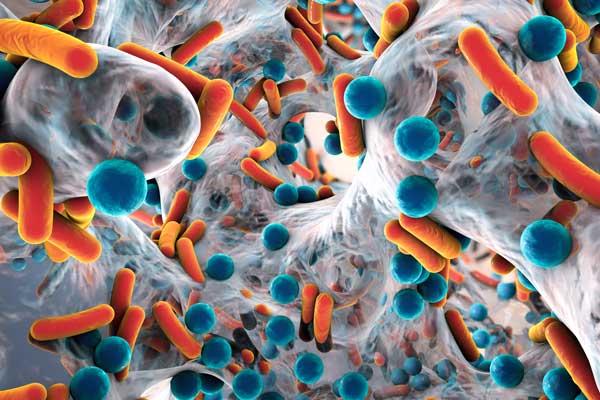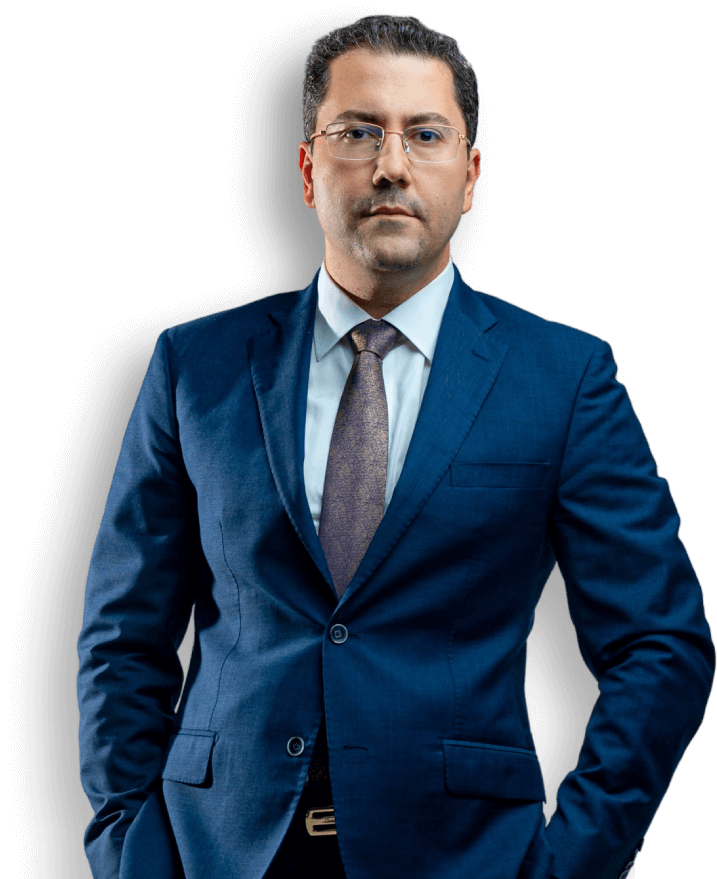About 40 million Americans experience food poisoning each year. The most common type of food poisoning is an E. coli infection. E. Coli, also known as Escherichia Coli, is a bacteria that can be found in the intestines. In the medical field, researchers have categorized E. coli into two categories: harmless and harmful. Fortunately, the harmless E. coli bacteria help with digestion; however, the harmful E. coli could lead to serious injuries, such as urinary tract infection. The most prominent recent E. coli outbreak occurred during the spring of 2019 when romaine lettuce from Northern California farms was found to contain traces of the bacteria. About forty people were infected. In 2015, Chipotle was sued for selling food contaminated with E. coli. A similar number of people were infected in this incident.
About 200,000 Americans suffer from violent E. coli poisoning each year. If you believe you or a loved one have suffered E. coli poisoning, our personal injury attorneys at Heidari Law could help you determine if you have a valid claim. Our experienced attorneys have convenient offices located near you in Las Vegas, Sacramento, Los Angeles, Irvine, San Jose, etc.
Causes
Food
You can become infected with E. coli bacteria in a variety of ways. In Los Angeles, one of the most common causes of E. coli bacteria is through food. Foods that have a high possibility of E. coli contamination include ground meat, milk, water, and vegetables.
- Meat that isn’t cooked thoroughly has a higher chance of carrying the bacteria.
- Most common include chicken, fish, and ground beef.
- Unpasteurized milk (compared to heated milk) has a higher chance of carrying the bacteria.
- Water, including drinking water and pools, carry E. coli.
- Vegetables that have not been washed thoroughly could carry E. coli.
Person to Person
You can also become infected with E. coli through contact with another person who is infected. The most common way the bacteria is spread from person to person contact is by not washing hands after changing a baby’s diaper.
Animals
You could become infected with E. coli after contact with an animal who has been infected. The most common animals that carry the bacteria include sheep and cows.
Symptoms
Symptoms are felt about 3-4 days after consumption. Common E. coli infection symptoms include stomach cramps (most common), diarrhea, fatigue, and vomiting. Severe symptoms include internal bleeding, seizures, and kidney failure. Unfortunately, infections could become deadly if left untreated. For many, symptoms last around a couple of weeks and are treated by proper nutrition. Children and older adults could experience severe symptoms when infected. That is why you should immediately consult with our experienced E. coli foodborne illness attorneys if you believe you have a claim.
Defendants
Defendants in a lawsuit can include anyone that could be liable for damages. In the cases of food, defendants may include farms, warehouses, processors, storage facilities, and grocery stores.

E. Coli Claim
A personal injury claim against defendants could be brought when the plaintiff has sustained damages. Types of damages include medical costs, future income, pain and suffering, loss of life, trauma, etc. In rare cases, punitive damages could also be awarded when the defendant acted with malice. Hospital costs include medical care and medication. The severity of the illness and symptoms the plaintiff experienced will determine the damages. One of the most common E. coli lawsuit claims includes negligence. Oftentimes, farms or warehouses fail to take proper precautions in protecting the food from E. coli. For example, a meatpacker will negligently fail to disinfect their tools, and the restaurant will fail to cook the meat thoroughly, causing the customer to become infected with E. coli.
Negligence is proven through three elements:
- That defendant (restaurant, farm, retailer, wholesaler) had a duty to the plaintiff.
- For example, a restaurant has a duty to prevent its customers from getting food poisoning.
- The defendant breached that duty by failing to take the necessary precautions to prevent E. coli contamination.
- Defendant’s negligence caused the plaintiff damages.
Product liability is also another way to bring an E. coli lawsuit. Plaintiff will have to prove four elements.
- Defendant distributed the defective (contaminated) product.
- For example, a gas station could be held liable for selling prepackaged sandwiches if the meat is found to be contaminated with E. coli.
- The product was defective when it left the defendant’s control.
- The plaintiff consumed the product in a foreseeable way.
- Plaintiff suffered damages as a result of the contamination.
Oftentimes, if there are multiple cases of E. coli infection caused by the same source, you may be able to join a class-action lawsuit. Please contact Heidari Law to determine if that could be possible and if a present class action already exists. In a class-action lawsuit, damages need to be proven by showing that you have consumed the infected product.
Next Steps
If you feel as though you have been infected with E. coli, keep a daily record of symptoms along with what you did to help you with those symptoms (ex: medication taken, hospital visits). Consult a doctor as soon as possible for a diagnosis to determine if it is a foodborne illness. Once E. coli is diagnosed, contact local health officials to report the infection. Almost all major cities have a health department, including Los Angeles, Las Vegas, Fresno, etc. Afterward, contact a personal injury attorney. Our experienced E. coli attorneys at Heidari Law will begin investigating your claim and will work to get maximum compensation for damages suffered.
Each state has a time limit as to when you can bring your foodborne illness claim to court. For example, California’s and Nevada’s statute of limitation is two years from when the damages first occurred.
Besides E. coli, there are various other foodborne illnesses that exist. Other food poisoning illnesses include norovirus and salmonella. If you or a loved one has become infected with E. coli, please contact Heidari Law immediately. Contact the Heidari Law Group for a reliable personal injury attorney that is experienced in California’s and Nevada’s foodborne illness laws. We have offices in Los Angeles, Fresno, Sacramento, Irvine, and Las Vegas. Heidari Law Group will be there to assist you. Call for a free case evaluation today.
Disclaimer: This blog is created by Heidari Law Group for educational purposes. This article provides a general understanding of the law. It does not provide specific advice. By using this site and reading through this blog, there is no attorney-client relationship created between you and any member of Heidari Law. Further, due to the constant change of the law, some parts of the information above may no longer be good law.



